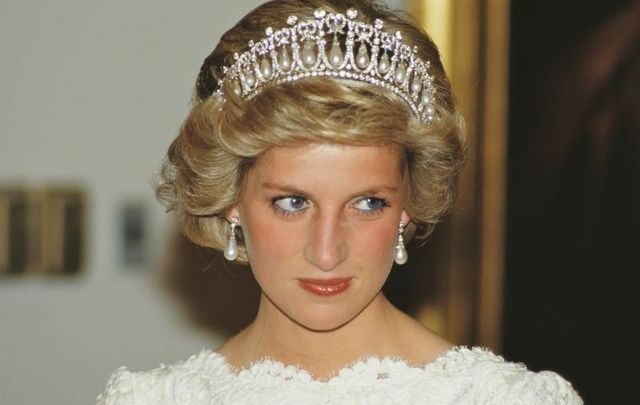Princess Diana was criticized for her "ignorance" of Northern Ireland after describing it as part of Ireland, according to a recently declassified note from 1993.
The late Princess of Wales showed "obvious ignorance of, or disregard for, constitutional niceties" in relation to Northern Ireland, Irish ambassador to London Joseph Small wrote in a briefing note to then-President of Ireland Mary Robinson.
Princess Diana, who was still married to Prince Charles at the time, had made the comment to the Irish diplomat in an interaction a year prior to the note.
The Irish ambassador wrote the message to Robinson ahead of her historic visit to Buckingham Palace in May 1993, according to The Irish Times.
The meeting would mark the first time a serving president of Ireland visited the UK and met with Queen Elizabeth II.
The folder with briefing material for the Irish president ahead of the visit includes the note from the Irish diplomat, where he stated that Princess Diana had visited Ireland "in a private capacity for equestrian functions."
“Whenever we meet Prince Charles, he invariably says that he would love to visit Ireland,” said Small’s briefing note, which is dated May 21, 1993.
“He is, of course, a regular visit (sic) to Northern Ireland. Princess Diana has also been there.
“Early last year she said to me, with obvious ignorance of or disregard for constitutional niceties: ‘I was in your country yesterday!’”
The briefing material also included a list of topics for possible discussion between the Irish president and Queen Elizabeth. These included Northern Ireland, bombings in the region and Britain, and cross-border issue.
The briefing folder, including the note from the ambassador, is among the newly released files from Ireland's National Archives.
The recently unsealed documents also revealed that a decision in 1981 by then-President of Ireland Patrick Hillery to decline an invitation to the wedding of Prince Charles and Lady Diana Spencer raised concerns within the Irish government that it would be viewed as a snub.




Comments